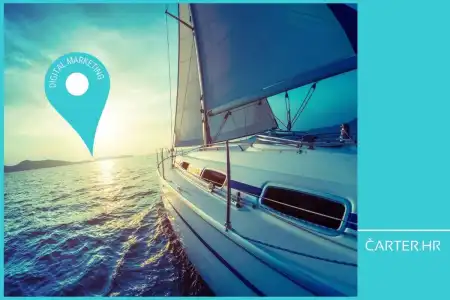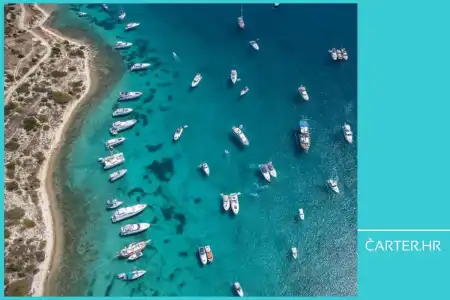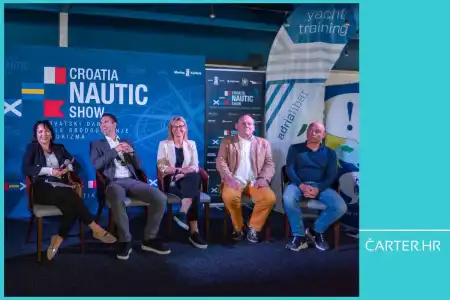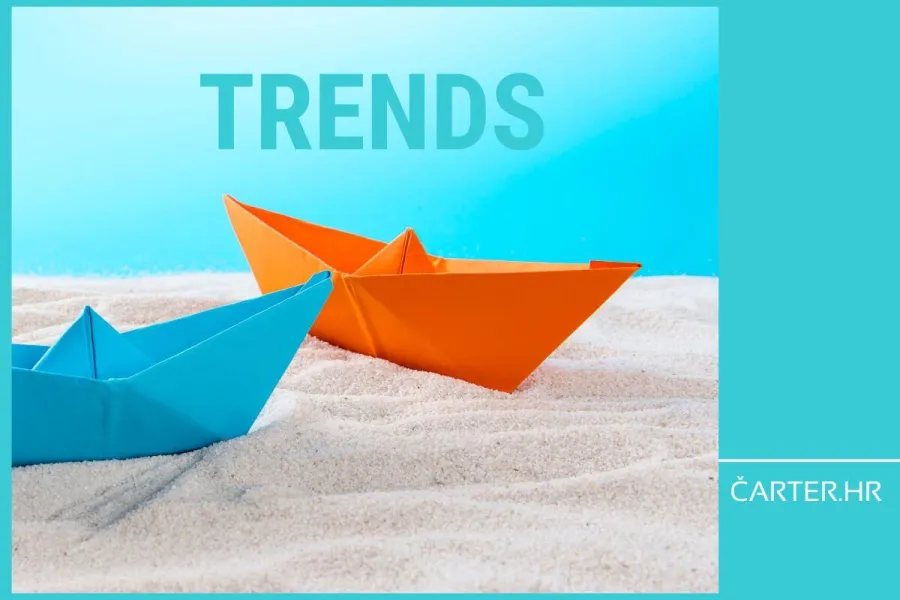
Do you think it was recently enough to just have a good website and a few ads? No, it wasn’t, but it certainly seemed that way. But today? Guests are searching for you (and finding you) in completely new ways – through voice queries, visual searches, and videos they watch in just a few seconds. If you’re not keeping up with these changes, your competitors surely are. So, how do you stand out and attract more bookings in 2025?
And yes, do you remember when digital marketing was so “simple”? Today, your competition isn’t just out there with better (lower) prices, but also with better marketing.
Anyone following digital marketing trends knows that it’s no longer enough to just have a website – it has to be optimized.
And not just SEO-optimized, but also adapted for voice search, first-party data, and much more.
This means that if you don’t adapt to the trends emerging (and being driven by your potential guests), you will remain invisible.
But don’t worry, you don’t need to become a marketing expert – leave that to us. You just need to know what truly works in 2025 and how to use it to get more bookings.
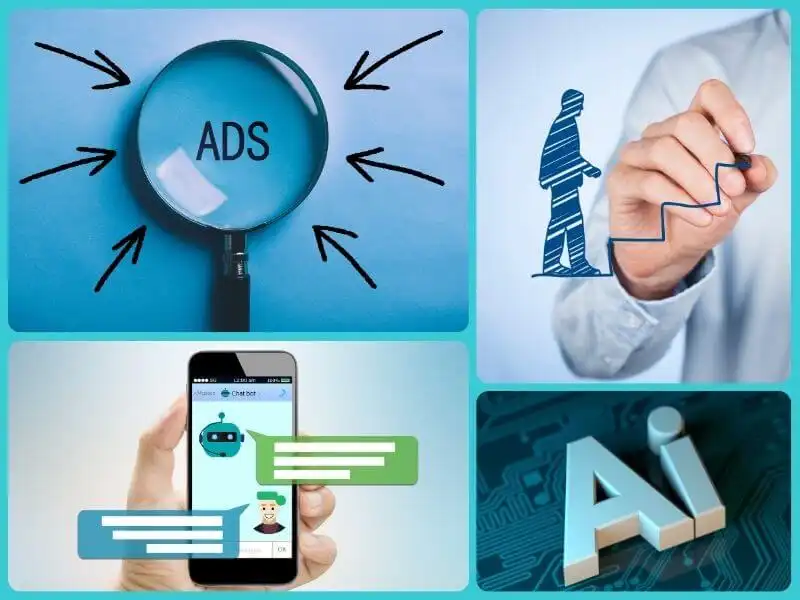
AI is changing digital marketing (how can you use it?)
Not so long ago, artificial intelligence was talked about as something vague, something that would only happen in the distant future. Or something possible only in movies.
Artificial intelligence (AI) is no longer out of reach – it is already a part of our daily lives. And in digital marketing, it will only become even more important in the coming years.
More and more companies are using AI. And why wouldn’t they, when it means better understanding of clients, customers and guests, more effective campaigns, and improved business operations?
What does this mean for you? How does AI actually help in marketing?
- Personalizing the user experience
Imagine a situation where your website can recommend exactly what the user is looking for – even before they realize it themselves. Possible? Yes.
AI analyzes what people search for, what they have purchased before, or what they have booked, and based on that, offers personalized recommendations. This approach improves the user experience while also increasing the likelihood that the person will actually make a purchase or a booking. - Smarter advertising
Spending your budget on ads, but they’re not delivering results? That’s over.
By analyzing vast amounts of data in real time, AI can accurately determine which audience is most interested in your services. This means less wasted resources and a higher return on investment (ROI). - Marketing automation
We all know how much time is spent sending emails, preparing social media posts, and tracking user engagement.
AI can automate all these tasks – for example, sending emails with offers at the right moment or posting content when your followers are most active. - Chatbots that work for you
AI chatbots act as virtual assistants available 24/7, every day of the year. They respond to inquiries, provide service information, and can even help resolve issues. This means no waiting for a response from a real person.
You save both time and resources. And on top of that, a chatbot doesn’t take vacations or need days off.
How can you use AI for your marketing?
- Set up an AI chatbot on your website – Faster responses mean happier customers, clients, or potential guests and a higher chance of conversion.
- Use AI for market analysis – You’ll better understand what your potential guests are looking for and adjust your strategy to their needs.
- Automate email campaigns – Personalized emails or newsletters achieve much better results than generic ones.
We listed AI as a trend, but soon, we won’t even see it that way – it is already changing the rules. If you use it wisely, you can improve your business, attract more clients/customers/guests, and save both time and money.
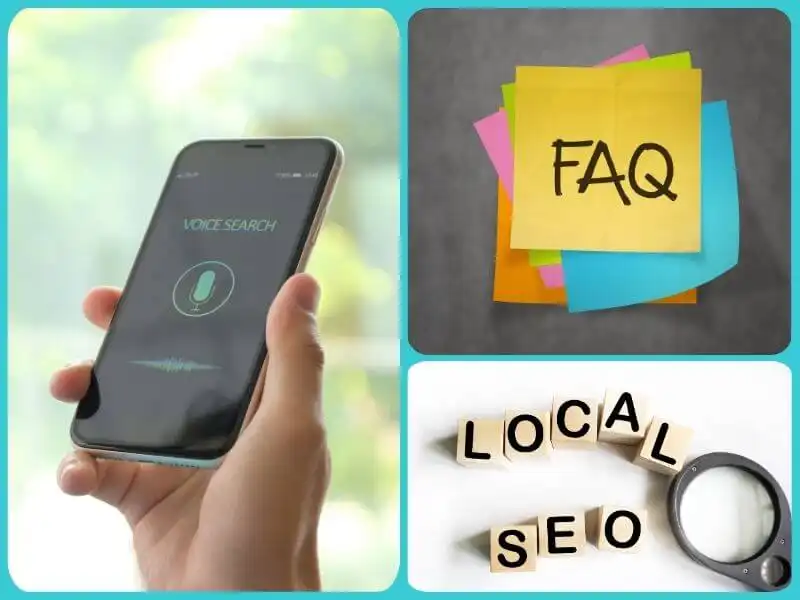
How do people search for you? Optimization for voice and visual search
Imagine the following situation - someone is sitting at home, thinking about a vacation at sea.
Today, instead of typing "charter catamaran Zadar" into Google, that person will simply say: "Hey Google, where can I rent a catamaran in Zadar?"
Or, maybe that same person saw a picture of a sailboat and instead of searching for the model, they use Google Lens for "Search What You See" to find out exactly where they can rent it.
People are typing less and increasingly using voice and image searches.
Do you want your yacht charter company to be visible? Then adapt your website and content to these new search methods.
People don’t speak the same way they type. So how do you optimize for voice search?
- Use a natural, conversational tone in your content
Instead of rigid, SEO-optimized sentences, write as if you're speaking to real people.
For example, instead of "Charter in Zadar", write "Looking for the perfect sailboat rental in Zadar? Here’s what we offer!" - Add Frequently Asked Questions (FAQ)
Google loves answering questions – that’s its primary job.
If your website has a "Frequently Asked Questions (FAQ)" section, Google will favor you – meaning your page has a higher chance of appearing as an answer in voice search results.
Questions like "What is the weekly rental price for a sailboat with 3 cabins?" or "What license do I need to be a skipper in Croatia?" will help improve your ranking. - Use Local SEO
People often use voice search with queries like "Best yacht charter near me."
If your website isn’t optimized for local searches, you’re losing potential guests.
Include the name of your city or region in your website text (but naturally, without overdoing it).
How will you optimize for visual search?
Visual search works by someone uploading an image into Google Lens or using search features on Instagram to find similar images and related products/services.
If your images aren’t well optimized, you’re missing out.
- Optimize images and videos
Add alt text that accurately describes what’s in the image. Instead of a generic file name like "IMG_1234.jpg", use something like "3-cabin sailboat for rent in Split." - Use descriptive file names
The image name helps Google with better indexing.
For example, instead of "boat1.jpg", use "sailboat-hanse-590-zadar.jpg." - Add transcripts for videos
If you have video content, always add captions and transcripts.
Google can’t “read” video content, but it can index the text associated with it.
Plus, a large percentage of people watch videos without sound.
Why is all this important?
- People are increasingly using mobile devices and smart assistants to search for information.
- If you don’t optimize your website for voice and visual search, your competitors definitely will.
- Adapt your content, use natural language, optimize images, and apply local SEO – and your yacht charter company will be easy to find.

First-party data – have you adapted to the change?
For everyone who has relied on Google and Facebook to perfectly target audiences using third-party cookies, it’s time for a change. This year brings a shift – a move towards using your own customer data, known as first-party data.
But what does this mean in practice? Instead of using someone else’s data for advertising, it’s time to build your own user database (and use that information to improve your marketing).
What is first-party data and why is it important?
First-party data refers to data you collect directly from your users, rather than acquiring or purchasing it from third parties, such as:
- Email addresses from newsletter sign-ups
- Purchase and booking history
- Website interactions
- Engagement with interactive content
- Survey and questionnaire data
- User behavior on social media
- Loyalty programs
- Customer experience optimization
Unlike third-party data, first-party data is more accurate, reliable, and ethically acceptable because users consciously share it with you.
Why is everyone shifting to first-party data?
- The end of third-party cookies – Google is phasing them out in Chrome, meaning companies must find an alternative.
- User privacy regulations – Laws like GDPR and CCPA are forcing companies to collect data more transparently.
- Better personalization – First-party data enables more precise marketing campaigns because it's more relevant than data purchased from other sources.
Now that you know this, what can you do with first-party data?
- Personalize marketing
Use past booking data to send tailored offers to guests. - Create targeted ads
Facebook and Google already favor Custom Audiences, meaning you can advertise only to users who have already shown interest in your services. - Improve the sales process
If you know what your users want, you can optimize your offer and make their decision-making easier.
First-party data is the future of digital marketing. Instead of external data, you now have the opportunity to build your own database and use it for better advertising, personalization, and long-term customer loyalty.
And if you haven’t started collecting your own data yet, now is the time.
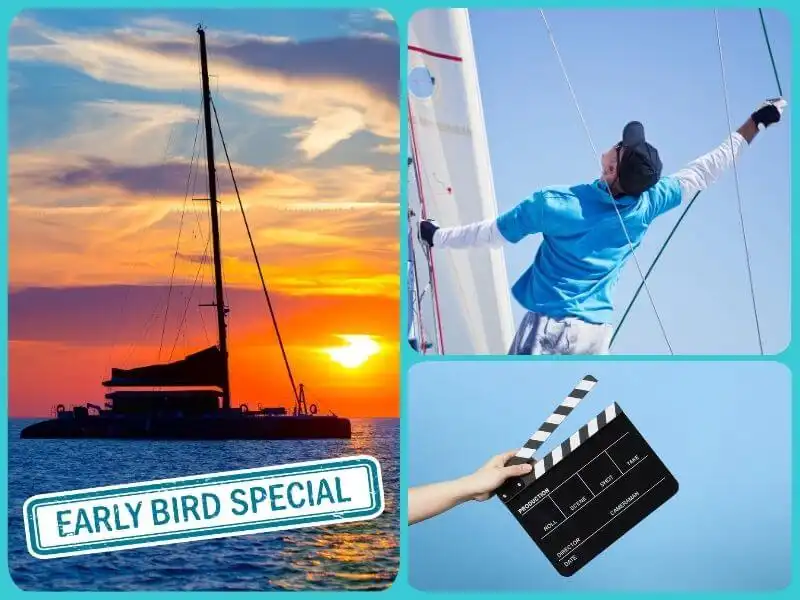
Total domination of short video content – where do you stand?
Here’s another scenario: someone is planning a vacation, scrolling through Instagram, and suddenly comes across a stunning video that has it all – a panoramic view of the sea, an elegant sailboat, a sunset, and people looking absolutely thrilled to be in that moment. And all of this happens in just 10-15 seconds.
Before they even realize it, they’re already thinking: "How can I be there too?"
That’s the power of video content (the short kind, on social media) – it grabs attention instantly, conveys emotion, and triggers a reaction fast.
And short videos are more important today than ever. People don’t have the time (or patience) for long ads or endless texts. They want quick, clear, and visually appealing information.
- TikTok, Instagram Reels, and YouTube Shorts have become the main platforms for quick, engaging content that easily goes viral.
- Video format also creates a stronger connection with the audience – sound, emotion, and visual effects leave a deeper impression than images or text alone.
- Social media algorithms “push” short videos – content that holds users' attention has a much higher chance of becoming popular and reaching a larger audience.
So, if you want more views, engagement (and bookings), video marketing is what you need to focus on.
But… how do you create a great short video?
- The first shot is everything
People decide within the first 2-3 seconds whether they will continue watching or scroll away.
That’s why you need to start with something eye-catching – a shot of a yacht, a spectacular sunset, or guests jumping into crystal-clear water. - Use storytelling
Don’t just show that you have beautiful boats – tell a story.
For example, create a video where guests arrive on the catamaran, the skipper welcomes them, they sail for a bit, and end the day with dinner on deck.
This creates emotion, and the audience can easily imagine themselves in that situation. - Include seasonal offers and promotions
If you’re offering early-bird discounts or last-minute deals, use video to promote them.
Ad text often goes unnoticed, but a video with a clear Call to Action (CTA) like: “Book now and save 20%!” can drive more inquiries. - Leverage trends and sound effects
Music and sound effects can enhance the atmosphere of your video.
If a specific sound or trend is currently popular, use it in your content (as long as it fits your brand and story) – this increases the chances of the algorithm boosting your post. - It doesn’t have to be perfect – but it must be authentic
Professionally filmed videos are great and you should have them.
But authentic, spontaneous moments often deliver better results.
Phone recordings, behind-the-scenes clips, and real guest experiences are more convincing and relatable.
If you don't have videos, you don't exist.
Short video content is the new standard in digital marketing.
If you want more bookings, higher engagement, and better online visibility, start using video regularly on social media.
You don’t have to be a professional photographer – just grab your phone, capture engaging moments, and share them.
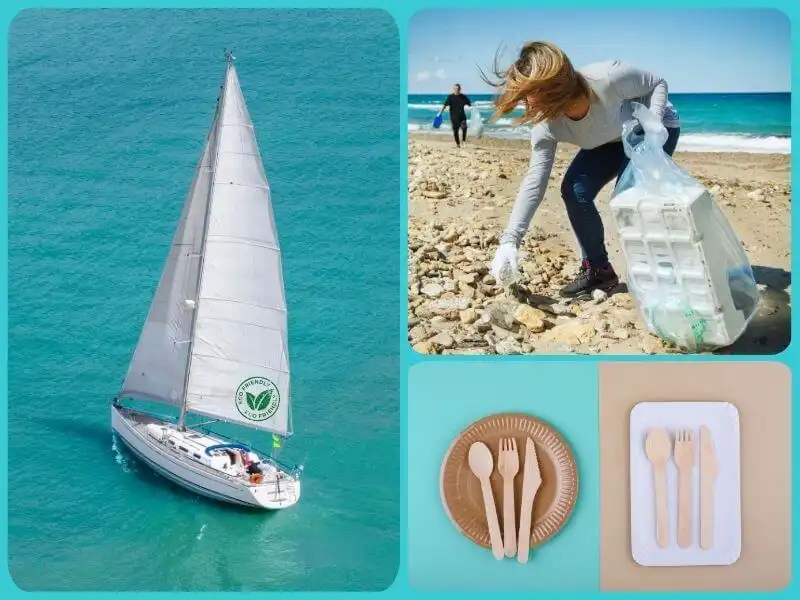
Sustainable and ethical marketing – Attract eco-conscious guests
Imagine this – a guest is choosing between two yacht charter companies, unsure which one to pick. Both offer similar boats and prices. But… one charter clearly communicates its efforts to reduce CO₂ emissions, use solar panels on yachts, and eliminate single-use plastics. Which charter do you think would be chosen?
More and more guests are intentionally choosing yacht charter companies that care about the environment. Sustainability is no longer just a marketing gimmick – it has become of major importance in the whole tourism industry.
If you want to stay relevant and attract a responsible audience, don’t just talk about sustainability – implement it.
Why is sustainability in the yacht charter industry so important?
- Tourism leaves a significant environmental footprint – from the fuel consumption of boats to the waste left behind by guests.
- The “new” travelers seek sustainable options – Gen Z and Millennials increasingly choose brands that align with their ecological and ethical values.
- Regulations are becoming stricter – The European Union and other institutions are setting tighter rules on reducing emissions and plastic usage. If you don’t adapt in time…
The good news? Sustainable marketing is not only ethically right – it will also help you stand out and attract loyal guests, as well as those who value responsible brands.
How to promote sustainability in yacht charter tourism?
- Communicate your eco-friendly initiatives
If you use solar power, have eco-friendly products on board, or offer zero-waste options, highlight this clearly on your website, social media, and promotional materials. - Reduce plastic waste on boats
Many guests recycle or want to avoid plastic, but if plastic bottles are their only option on board, they have no choice.
- Provide glass bottles with filtered water.
- Use biodegradable or reusable packaging and containers.
- Educate guests on how they can reduce their ecological footprint while sailing. - Collaborate with the local community
Sustainable tourism is not just about protecting the environment – it’s also about supporting people. Partner with local fishermen, winemakers, and restaurants – recommend authentic products and experiences to your guests.
For example, offer guests local olives, cheese, and wine instead of imported products. This reduces the carbon footprint of food transportation and supports the local economy. - Find eco-friendly fuel alternatives
One of the biggest challenges in the yacht charter industry is fuel consumption.
Hybrid or electric boats are slowly becoming a reality, and companies that adopt them early can position themselves as leaders in sustainable tourism.
And if you already use energy-efficient engines, make sure to communicate that to your guests.
But don’t let your sustainability story be greenwashing.
Guests today are well-informed – if you just slap on an “eco-friendly” or “sustainable” label without real action, people will notice quickly.
Provide specific data on:
- How much plastic you’ve reduced
- How much solar energy you use
- How much waste you recycled last year
- How many cleanup actions you organized
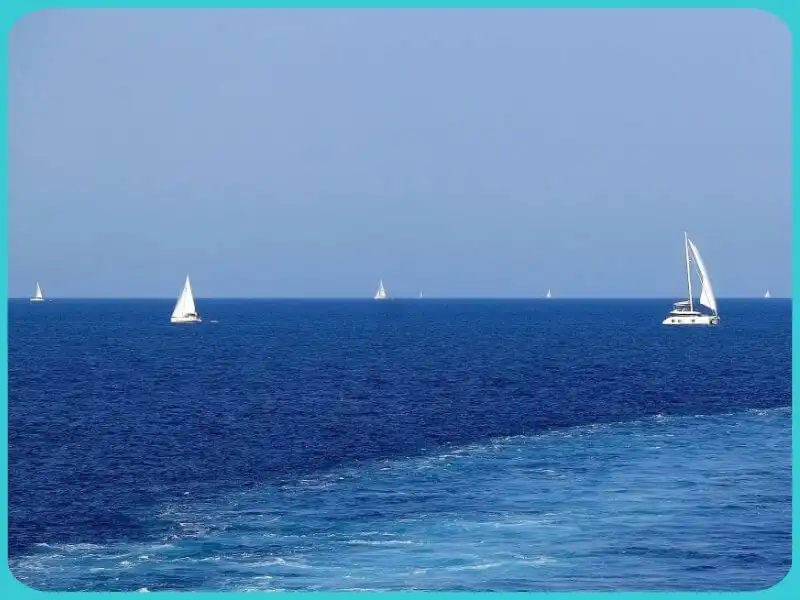
A new era of digital marketing in the yacht charter industry is beginning
Digital marketing has never been something you just "set up" and forget about. And yet, trends seem to change almost daily.
What worked yesterday might be completely irrelevant tomorrow.
What used to be an extra advantage is now the standard.
If you want to succeed, you must be visible, authentic, and innovative.
And you need to be ready...
The yacht charter industry is getting more competitive – every year, more yacht charter companies are registered, and there are more boats in marinas.
And guests? They are more demanding and know exactly what they want – a personalized experience, quick solutions, and a sense of connection with brands that share their values.
If you don’t adapt to new trends, tools, and communication methods, your competition will do it for you.

Use the opportunities digital marketing offers. The secret is not to be everywhere – but in the right places, with the right message, at the right time.
The future belongs to those who are ready to grow and evolve. Are you ready?
Don’t leave your digital marketing to chance. Contact us and find out how we can help your business.
Categories of trends
- News
- Sale
- Marketing
- SEO
- Web design
- Social media
- Technology
- Regulations
- Management
- Education
- Finances
- User experience
Newsletter
Sign up for the newsletter and receive the latest trends and tips straight to your inbox

